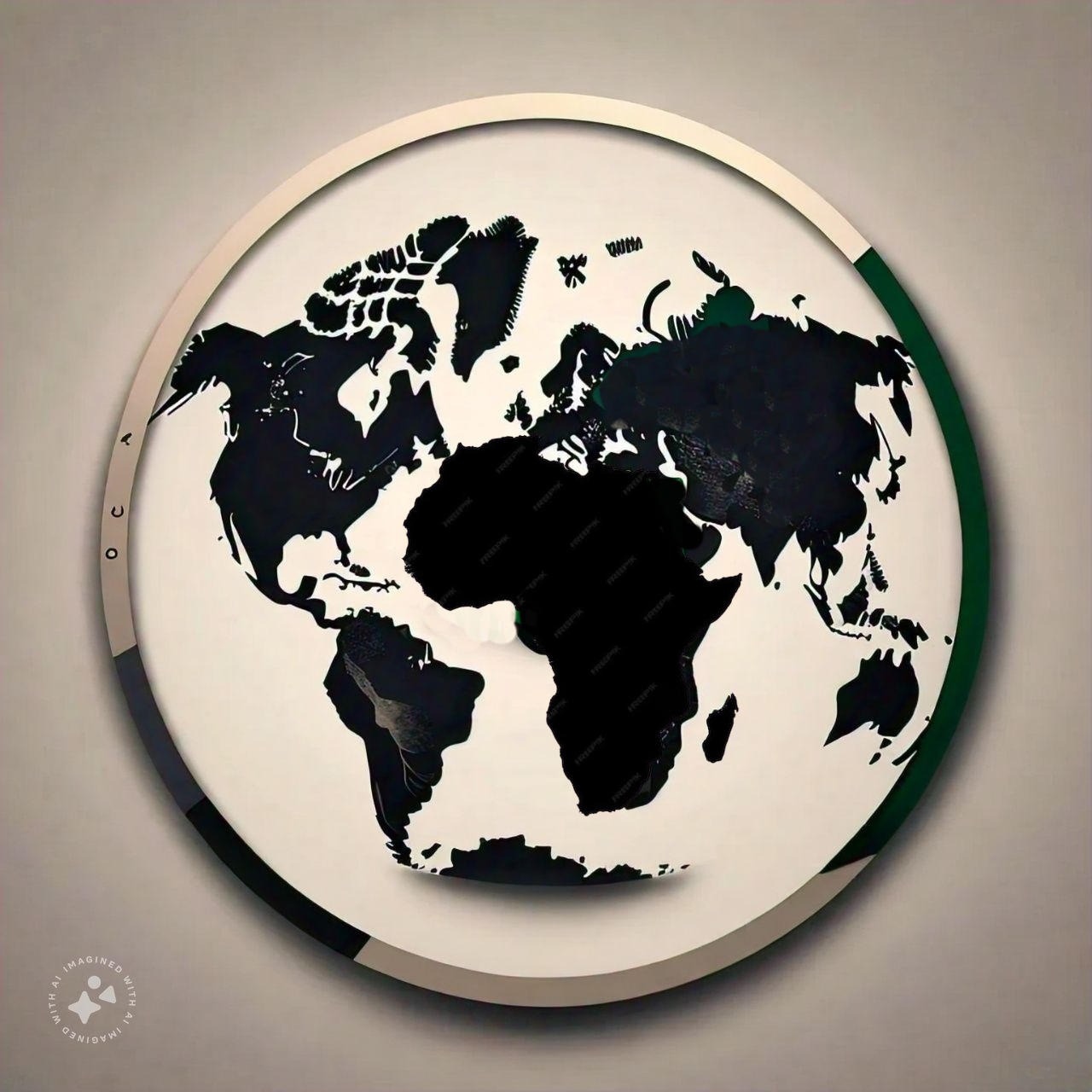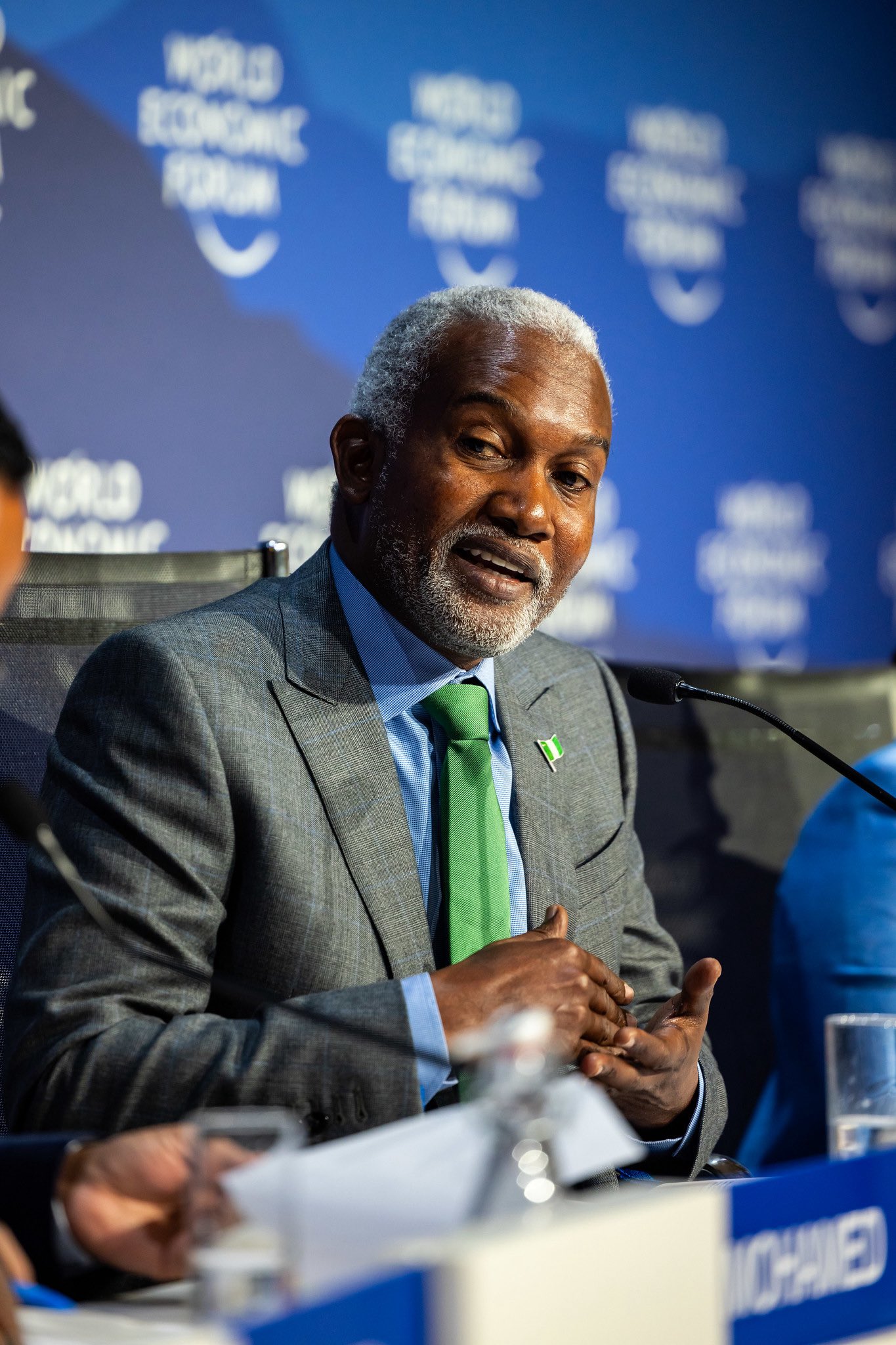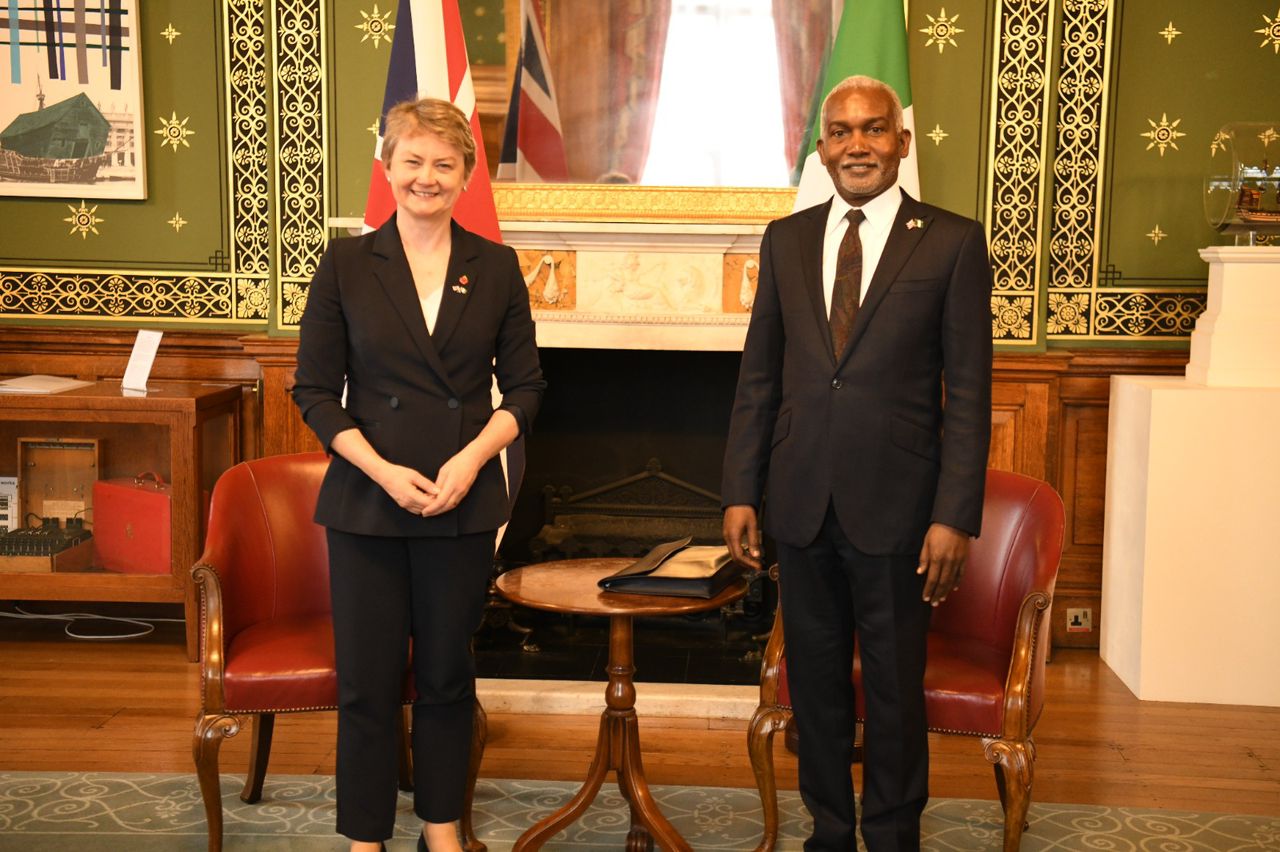The Rising Assault On Sovereign Immunity And Implications For Developing Countries
GODKNOWS IGALI

Recent developments around the world have continued to spark extensive debate within diplomatic and academic circles regarding the continued relevance and potency of international law. Specifically, some have tended to ask if international law actually exists as the wars in Ukraine and the Middle East rage unabating. Even more, the time-honoured principle of equality of states, a cornerstone of international law that gave birth to “Sovereign Immunity” is torpedoed in national courts daily. Hence, assets belonging to weaker states, in a rather Hobbesian manner, are clutched by stronger nations, unrestrained.
2. The truth is that international law still exists and remains pivotal to regulate the behaviour of the 195 countries of the world and other actors on the global scene. Actually, the province of international law covers virtually all spheres of human existence, particularly factoring on human rights, humanitarian rights, criminality, the environment, international trade, the sea, the air, and perhaps most importantly, sovereign immunity and responsibility of states.
Are states really sovereign?
3. What we tag “Sovereign Immunity” is perhaps the oldest notion of international law and has existed from when the formal development of human society had its nascence. According to Professor EH Feichbenfield, (1931) a leading scholar in the field, this goes back to the oldest norms of what was considered wrong and right. Indeed, it was premised on the fact that all collections of human beings are equal to one another and, should, be respected as such. From the most unrecorded and uncodified ancient systems of morality and international jurisprudence, it was recognised that in the same way in which men are bonded by certain standards or behaviour, various collections of human groups must conform to what is generally accepted as right in their relationships.
4. By the time ancient civilizations began to sprout around Mesopotamia, Egypt, Greece and Rome, the whole concept of the divine and semi divine status of rulers emerged, granting them and what pertained to them; absolute immunity from all forms of legal proceedings. According to leading British lawyer and scholar, Ankit Malhotra (2021), this is premised on the maxim of “res non potest peccares’ – the King (sovereign) can do no wrong. Indeed, this continued to when monarchs, feudal lords, and nobility conjured on themselves same immunity, but evolved significantly and took a formalized frame during Renaissance Era, which started from about 1500. Particularly, French scholar, Jean Bodin through his ‘Six Books of the Commonwealth’ and Dutch Diplomat Hugo Grotius gave formal meaning, clarity, and understanding to the notion that sovereigns (rulers of the various nations) are equal and should not be subjected to the jurisdiction of their equals.
5. Fortunately, this era coincided with the emergence of the modern state system, which came with the Treaty of Westphalia in 1648, where 16 modern European states, 66 Imperial states, amongst others gathered. According to Leo Gross in his “The Treaty of Westphalia and the Modern State System” (1978), this required that all participants were treated equally and accorded full rights, privileges, and respect. Interestingly, before the “Peace of Westphalia” held, negotiations had gone on for four years regarding the limits of this question of sovereign equality and sovereign immunity. Westphalia, as it were, insisted on “par in parem non habet imperium” – one sovereign state is not subject to the jurisdiction of another state. So, the final document was seen as a cardinal factor for maintenance of future peaceful co-existence between states, balance of power, and non-interference in the internal affairs of one another.
6. In this modern era, that is, since 1900, several international conventions and protocols have been adopted to codify international law to become in truth what had hitherto been termed the Law of Nations. This became more enhanced with the enactment of the United Nations Convention on the Principles of the Immunity of States and their Properties in 1947, the Vienna Conventions of 1961 and 1963. There is also the European Convention on State Immunity. Indeed, Article 3 of the Covenant of the League of Nations and Article 2 of the Charter of the United Nations all gave great emphasis to sovereign equality of states. Even the New York Convention (Recognition and Enforcement of Foreign Arbitral Awards, 1958) which some interpret as encroaching on Sovereign Immunity, on the contrary, states in its Article V (I) that recognition and enforcement may be refused if the award is “contrary to public policy”, thereby affirming sovereign immunity.
7. Despite ongoing debates and contentions ignited, especially as it pertains to commercial activities and human rights issues, the United Nations underpinned the importance of sovereign immunity in its Resolution 59/38, adopted in 2004 and its later Resolution 69/114 of 2014. In the chapeau to the 2004 Resolution, the UN restated inter alia:
“The principles of international law, in particular, the principles of sovereign equality and non-interference in the internal affairs of states ….”
8. And later repudiated the attempt at “extra territoriality effects which affect the sovereignty of other States and legitimate interests of entities or persons under their jurisdiction …”.
The Onslaught on Sovereign Immunity
9. Sadly, systematically, the concept of sovereign immunity has continued to come under great evolution, challenging and redefining its usage. During the last 40 years, this has taken many dimensions, starting first with the 1976 US Sovereign Immunity Act (FSIA) which limited sovereign immunity, thereby opening the floodgates for litigations against foreign countries in cases dealing with commercial activities and human rights abuses by its national courts. Then came the major judicial opinion on the matter. In the case, Trendex vs Central Bank of Nigeria brought before the United Kingdom’s Privy Council, Lord (Baron) Tom Denning, one of the greatest jurist of the 20th century held that “states or their instrumentalities (who) act like commercial entities ought to be treated as commercial entities. In other words, they can not hide under the cloak of sovereign immunity in the market where it was involved in a commercial activity. ” Paraphrased more differently, his opinion was that even if the CBN had been found to be a department of state, it would still not have immunity since even a state would lose its immunity. To give effect to that judgement of 1977, the UK State Immunity Act of 1978 webbed itself around similar concerns as their friends across the Atlantic. To give teeth to the new law, in 1980, US courts allowed a lawsuit against officials of the Paraguay government on account of supposed human rights abuses. In 1998, Augustus Pinochet, erstwhile dictator of Chile, was denied sovereign immunity due to some human rights abuses in his country. This new trend also coincided with the time when the International Criminal Court (ICC) came on stream and started the prosecution of high-ranking officials, particularly from Sudan, Kenya and Libya, overturning the claim of sovereign immunity which was at variance with what was considered as crimes against humanity. The Belgians later followed suit in May 2003 by enacting their own “Universal Jurisdiction Law” in tandem with that of the US and UK.
10. Since then, national courts in various countries have taken activist positions to deny sovereign immunity as it pertains to human rights abuses such as torture, genocide or commercial activities such as contracts and investments. Lately, sovereign immunity has also been curtailed on cases where terrorism or cyber-crimes are involved (The US Anti-Terrorism and Effective Death Penalty Law, 2008).
Whose assets have been seized?
11. Over the years, the assets of several countries, especially from the developing world, have been seized, arising from judicial pronouncements by national courts abroad. Most noticeable, based on its own federal law, D’-Amator Kennedy Act and Helms-Burlon Act, both enacted in 1996, several assets belonging to Cuba amounting to billions of dollars were seized in the US. As aptly averred by Ilias Bantekas in “The Seizure of Sovereign Assets” (2017), shortly afterwards, Argentina’s $1.3 billion assets were seized in 2012 by the US due to debt issues. In the same year, assets belonging to Egypt amounting to $100 million were seized in the UK due to disputes on natural gas followed by Iraq’s assets amounting to $1.7 billion also seized by the US after the fall of Saddam Hussein in 2003.
12. What has been most disturbing in this diminishing application of sovereign immunity is the fact that poorer countries, especially in Africa, have become the victims of its denial in national courts of law in the US and in Europe.
13. The facts from research also show that in 2011, a presidential jet belonging to Equatorial Guinea was seized in France as part of investigations into corruption and money laundering. A similar fate befell a Libyan presidential jet during the period of that country’s civil war also in 2011. In 2014, the jet belonging to the President of Guinea Bissau was seized in Brazil because of disagreements over a debt of $25 million. Sadly, this jet was even auctioned when the latter could not afford to pay and offset the debt.
14. In that same year, a Congolese presidential aircraft was seized in South Africa over unpaid debt of $30 million. During that same period, a Zambian presidential plane was seized in South Africa in a legal dispute over a subsisting loan of $40 million. In 2019, such seizure was followed by an incidence involving a Gambian presidential jet seized in the US as part of asset recovery linked to former President Yahya Jammeh’s corruption case. In a similar way, a presidential jet belonging to Central African Republic was seized in France as a result of international sanctions on that country. In a more recent case, Belgians likewise seized state assets belonging to Congo due to debt enforcement also. Canada seized Iranian assets in 2020 due to sanctions for human rights abuses. In the same year, the Swiss also seized properties belonging to Angola due to what they described as corruption. In addition to these, there was the case of the seizure of Pakistani assets in the UK, which came as a result of a dispute with a British company in 2019.
15. According to available data, more astounding physical assets of states and finances that are ordinarily immune have also been seized in recent times. Some of the most famous ones are those of $1.7 billion of Iranian assets seized due to terrorism and related sanctions. In 2018, the US seized some South African assets due to corruption; Venezuelan oil assets seized in 2020. Sudan assets amounting to $150 million as well as those belonging to Yemen in various sums and Syria’s amounting to €100 million were seized in various EU countries due to human rights abuses or terrorism.
16. The only exception to the plight of weaker countries was in 2022 when the EU froze €260 billion of Russian foreign reserves and about a similar amount in the US due to the war in Ukraine In Europe and Australia, some other physical Russian assets were seized. In another exception, the US had also seized Chinese state assets previously.
Nigeria’s Own Take of Woes.
17. As often reported in the local and international media, the sad story of seizure or detention of Nigerian government assets, particularly aircrafts have not been new in the country’s relations with foreign companies and their courts. For flying objects, as far back as 2007, a Dassault Falcon 900 presidential jet belonging to the Nigerian government was seized at Le Bourget Airport, Paris in France, over debt issue. About the same time, in the UK, a presidential jet (Boeing 737-800) was seized at London Heathrow airport over a £12.5 million debt to a British company, Avcon Jet Ltd. Since then, it has been a catalogue of woes, with all manner of government aircrafts seized or remanded in the United Kingdom, France, Switzerland, Germany, Canada, Dubai, and South Africa.
18. Relatedly, in 2017, a UK court allowed the seizure of a Nigerian property in Hampstead due to a £5 million debt to a UK based construction company. The following year, 2018, another UK court issued an order for the seizure of a property owned by the Government of Nigerian in Kensington, London due to an unpaid £10 million debt owed to a UK based Energy Company.
19. In the catalogue of woes, in 2018, a Nigerian government property in Houston was allowed by a US court to be seized due to a debt of $3 million to a US energy company. The following year, i.e., 2019, another US court allowed the seizure of a Nigerian government property in Los Angeles as a result of an unpaid $1.1 million to a US based construction company. This culminated in another US court ordering the seizure of a Nigerian government property in New York due to an accrued $1.4 million debt to an energy company in 2020 due to the scandalous failed contract between Ogun State and Chinese company, Zhongshang Fucheng Industrial Investment Limited.
20. Things took a turn for the worse in 2021 as the process of seizure of various Nigerian physical assets and aircrafts commenced simultaneously in the US, UK, France and Switzerland at the behest of same Zhongshang Fucheng Industrial Investment Limited. The Chinese company had won in the US court to take over three aircrafts and other Nigerian assets. As particularly reported by Bloomberg, Reuters, and Nigeria’s own The Guardian newspapers, this process was completed in 2024, leading to the seizure of aircrafts, Dassault Falcon 7X, Boeing 737, and Airbus A330.
21. As widely reported in the media, in 2023, the UK Court of Appeal upheld arbitration awards, moral damages, along with legal fees, in favour of the notorious Zhongshang, Chinese company to take over two properties in Liverpool owned by the Nigerian Consular Office. Still on the issue of the $70 million debt owed to the Chinese company, a US Court of Appeal in a final stage ordered the Chinese firm to take over two properties belonging to the Nigerian government in the US. This verdict was delivered on Friday, 19 August 2024, in what was a majority judgement, 2-1. Clearly, the multiplicitous and parallel litigations by the Zhongshang Chinese company against the Nigerian interest in the UK, US, Canada, France, Switzerland, etc, is intended at creating maximum damage and effect.
The Double-faced Application of Sovereign Immunity among the Great Powers
22. The question recurrently raised by commentators on the subject matter is – how has sovereign immunity been upheld or denied amongst countries in the global north in their inter-relationships, as especially detailed by Christiana Akrivopoulou (2018)? In the 2018 case between Belgium and the Netherlands, the former invoked immunity against the Dutch court ruling to pay damages to a Dutch citizen affected by Belgian nuclear waste. In the same line of cases between the Austrians and the Germans in 2019 in which the former invoked sovereign immunity against the ruling to pay damages to a German citizen who was affected by nuclear plant emission. In 2019, France successfully pleaded sovereign immunity against a UK court ruling to pay UK citizens affected by French nuclear tests. In other cases, also on European soil, in 2020, the Government of Greece successfully invoked sovereign immunity against a German court ruling to pay damages to Greek citizens affected by World War II. When Italy took Spain to court over damages to Italian citizens affected by the Spanish shipping company, the Government of Spain successfully invoked sovereign immunity in 2019.
23. Other cases in the public domain which were essentially commercial were between the German state owned bank (KLW) and Italian bond owners (2019); between French company (ENGIE) and Belgian counterpart (Fluxy) in 2018; UK Export Finance Ltd and Irish company, Aercup as well as Spanish State Company (Repsol) and Portuguese counterpart in 2018.
24. Indeed, on its part, the US government has successfully pleaded and obtained judgement upholding sovereign immunity in several land dispute cases as far back as 1882. In 1981, the US Supreme Court upheld sovereign immunity for the US government in cases involving claims for damages relating to Native Americans’ land. By 1993, the US Court of Appeal (Federal Circuit) upheld sovereign immunity in a case involving contractor’s claim for payment. The most spectacular was the 1994 case, where the US Supreme Court upheld sovereign immunity for the US government in a case involving claims for damages. In 2012, the US Supreme Court also upheld immunity in a case involving claims for tax reforms.
What can the weaker countries do?
25. It is obvious that the diminished claim of sovereign immunity has a north-south dichotomy. So, while Western countries have generally maintained strong sovereign immunity respect amongst themselves, poorer countries often have theirs being eroded in the same courts, safe for few exceptions.
26. What the above patterns show is that poorer countries face the same challenges as it pertains to sovereign immunity as a result of many factors which include but not limited to meagre economic resources, dependence on foreign aid and investment, their uneven diplomatic influence in world affairs and their inability to properly muster the resources to undertake high profile international legal representation. It is, therefore, more difficult for them to defend their sovereign immunity and their hard earned assets against powerful nations and in defence of their economic interests.
27. This disparity highlights the need for developing countries to adopt new models to be able to properly protect their interests at a time when international law is being given different shades of interpretations. There is need for them to come up with new paradigms and strategies to protect their interests. This could be done through:
i. Ensuring that they exercise more contractual discipline and decorum in their dealings. The arbitrary manner in which contracts are terminated or contractual obligations treated with levity must be brought to an end. Reckless behaviour in this regard, resulting in national shame, must be sanctioned;
ii. There is need for a stronger internal control mechanism to ensure that major contracts with foreign companies in particular are properly vetted by experts in the respective foreign ministries and ministries of justice. Indeed, there is a need to develop a common template to indemnify the national governments from contingent liabilities in which their assets in different countries could be seized. So contractual obligations must, therefore, always have clear exit clauses;
iii. Furthermore, the less developed countries must advocate for equitable laws and reforms which would spell in more clear terms, the limit of national courts as it pertains to their unmitigating rulings on questions in which the liability of sovereign states are only tenuous. For example, situations like the extant case of Ogun state, when the acts of a sub-national, acting alone leading to the seizure of sovereign assets should be excluded in clear terms in any agreement. Such reforms could be handled at the level of the United Nations General Assembly (UNGA), the African Union, International Law Reform Commission (ILC) and International Arbitration Commission (IAC) and not the least the ICJ and the PCA;
iv. Developing countries also need to build up more effective diplomatic strategies that provide for back channel engagements when conflicts arise while negotiating such transactions. It is less effective for diplomacy to come in when litigations have gone far. This would enable the sovereign states to invoke the need to exhaust available G-to-G legwork in resolving disputes before resorting to law courts;
v. The Supreme Courts of both the US and UK have upturned some cases in which sovereign immunity was denied to Argentina, Saudi Arabia, China, Nigeria (PI&D case), etc, at lower or at appellate levels. This means there is still a hope to fight on. So, the right of appeal to apex courts even in their lands should at all times be fully exercised while robust diplomatic engagement as in the instant case with the Chinese company against Nigeria is afoot.
Conclusion
28. The fact that not only Nigeria but virtually all countries of the south are victims of the predatory and brusquely imperious gale of sovereign seizure of assets must not be allowed to be a new normal. The countries of the global south must fight in more concerted diplomatic manner to protect their assets or risk a situation where they may wake up and see that stronger countries have appropriated even their existence. In contrast, clearly, the big boys of the world have continued to navigate sovereign immunity in principle amongst themselves; even when the subject matters are very sensitive historical, political, and economic issues. However, until there are comprehensive reforms, there may be need to return to the International Court of Justice (ICJ) to give a ruling as to the level of jurisdiction which national courts can assume vis-à-vis such cases in which the sovereign immunity of countries, including diplomatic and consular premises or personal virtuals of Heads of States, such as Presidential jets could be sequestered at will by national courts. This may help give some succour for now, but the fight must be sustained.
Dr. Igali is a career diplomat and award-winning writer.
ambigali.com












